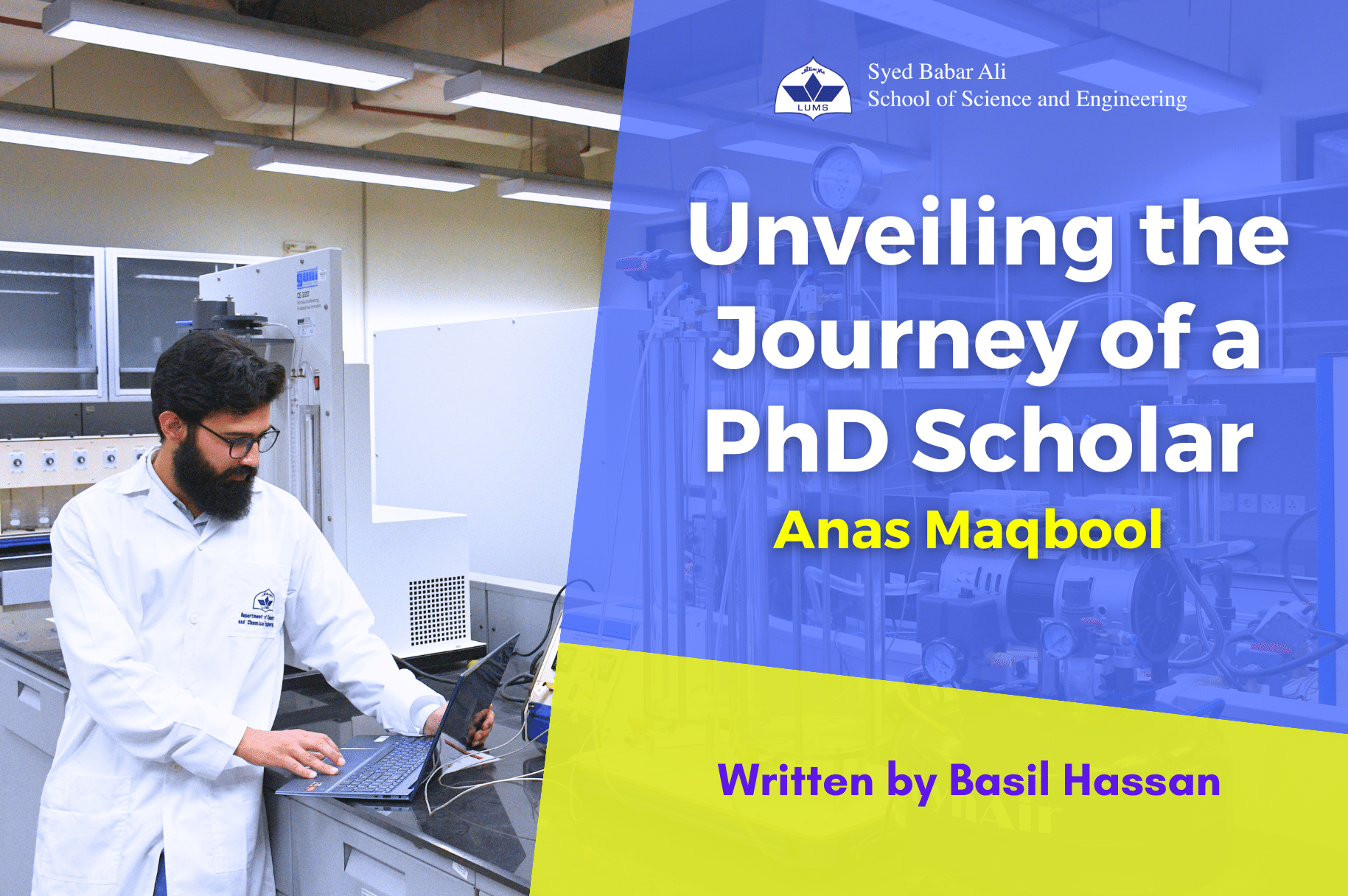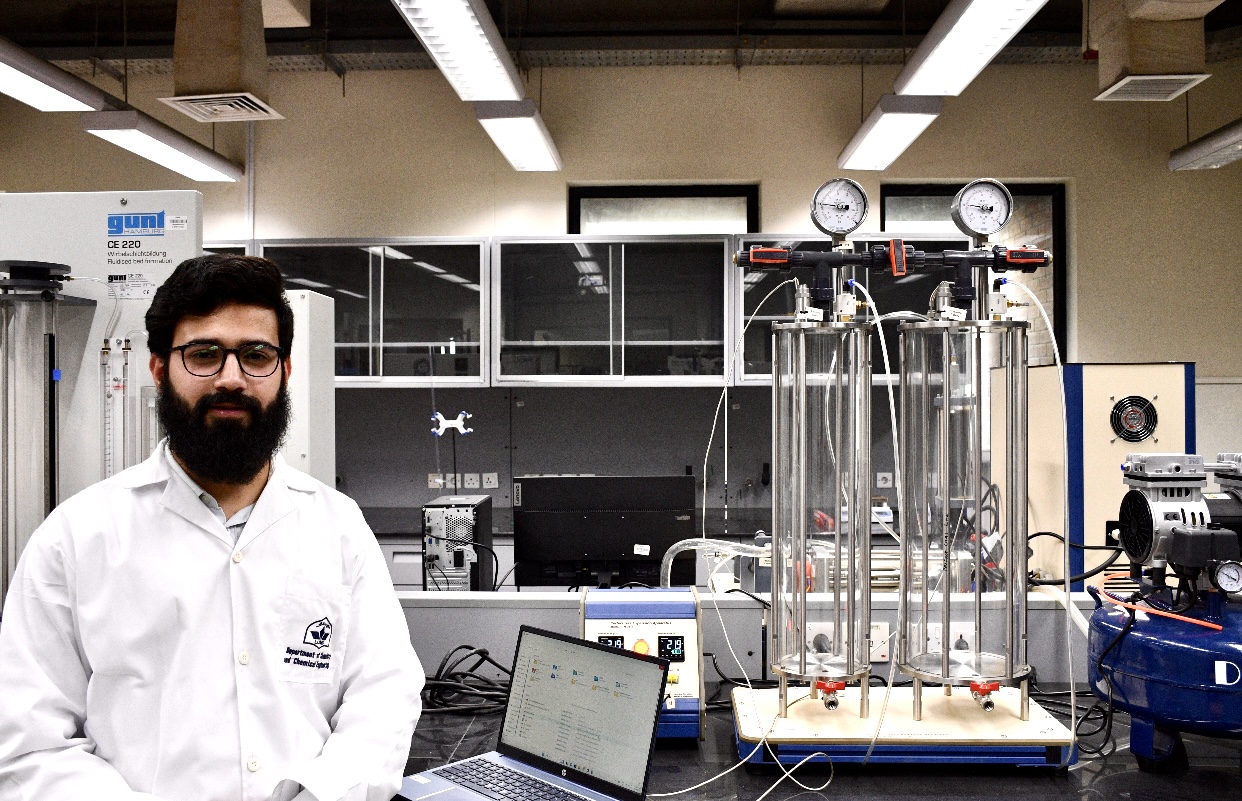
From Assumptions to Enlightenment: Unveiling the Journey of a Ph.D. Scholar
Going into this interview as a freshman, I expected Mr. Anas Maqbool, like any other Ph.D. scholar, to be highly intellectually oriented. However, as the conversation unfolded, what I anticipated to be a nerdy encounter transformed into an enlightening discussion. He is one of the three students selected from all over the country for the first-ever batch of Ph.D. in Chemical and Environmental Engineering at LUMS, which I consider a tremendous honor.
With a focus on sustainable production and environmental remediation, this innovative program combines the fields of Chemical and Environmental Engineering. It holds a unique position as Pakistan’s first graduate program in Pakistan to integrate these disciplines, with a specific emphasis on advancements in separation techniques, renewable energy, and nanomaterials. The primary objective is to cultivate a sustainable future by equipping students with engineering practices that reduce the environmental impact of industries. This interdisciplinary program offers a comprehensive curriculum encompassing chemical and environmental engineering courses, with core subjects such as air and water treatment processes for all students.
Furthermore, students can choose from various elective courses, including Evolution Technology for mitigating air pollution, Solid Waste Management, Renewable Energy, and Sustainable Management, among others. To promote practical learning, the program also integrates project-based initiatives on public health. These projects provide students with hands-on experience in solving complex environmental engineering problems and allow them to apply their knowledge to practical scenarios.

Maqbool remembers his first day of college when the instructor asked the class why they chose to study Chemistry. Surprisingly, 70 percent of the class admitted it was because they could not get into other programs. In stark contrast, Maqbool's decision was driven by a genuine passion for engineering. He delivered a compelling response on the aspect of chemistry not being a popular discipline among aspiring students in Pakistan.
“Scope banday ka hota hai. Become an unparalleled expert in your work because people always look for the best. Just like the careful selection of an architect and interior designer when building a house, the rationale behind it is simple: the pursuit of excellence."
During his bachelor's degree, Maqbool collaborated with fellow students on an innovative project focused on converting biomass into bio-diesel, a sustainable form of fuel. They employed transesterification, a chemical process that uses alcohol and a catalyst to convert triglycerides into alkyl esters. Maqbool's job was to manufacture this catalyst, using dried and crushed Loquat pits to create a filtered green carbon catalyst after gasification. Their work was inspired by a study conducted by students from a German university who had used date pits for a similar purpose.
Despite the novelty of their research using local fruit, the practicality of scaling up production was hindered by the large quantity of fruit pits required in relation to the amount of oil produced. Collecting such large quantities proved to be impractical.
In his master's program, Maqbool continued to showcase his ingenuity by designing an energy optimization plant that effectively utilized hydrogen to minimize line losses. The significance of his work was recognized by experts in the field, as evidenced by the impressive impact score of 11.5 attributed to the journal in which his research was published. In another project, he converted waste plastic through pyrolysis to fuel-grade gasoline, a project that was nominated for the Department of Chemical Engineering’s best project of the year at COMSATS.
The Ph.D. in Chemical and Environmental Engineering program offers a unique opportunity to bridge the gap between the fields of chemistry and the environment while emphasizing the importance of sustainable practices for long-term benefits. Maqbool has been in the program for nearly a year, and he expresses his optimism and satisfaction with the experience so far. He says LUMS provides an inclusive and supportive environment that encourages students to strive for excellence and achieve remarkable accomplishments.

